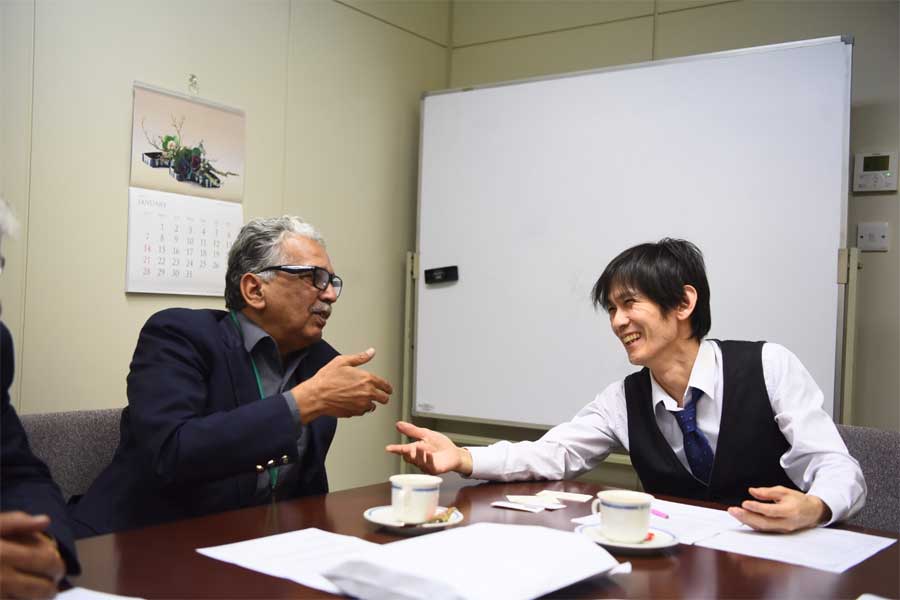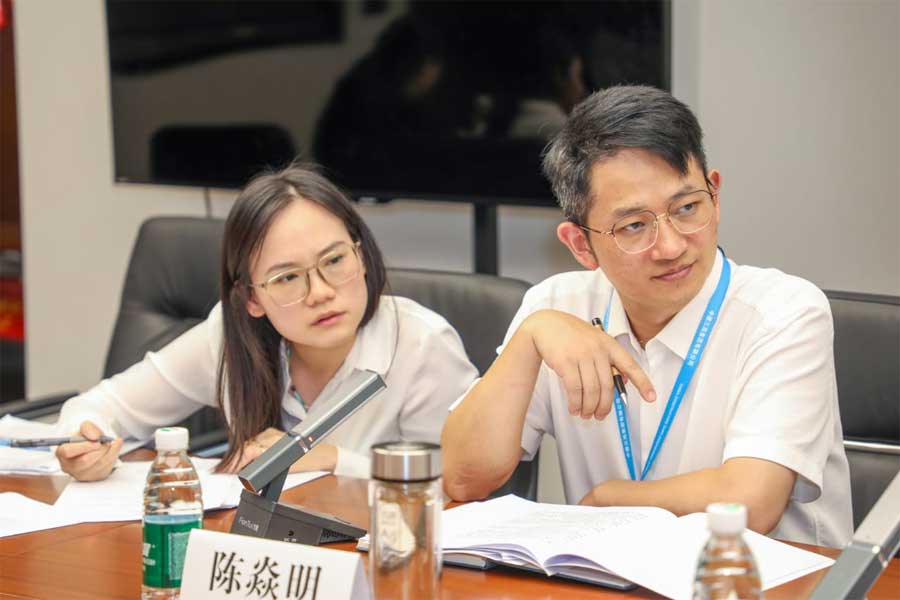
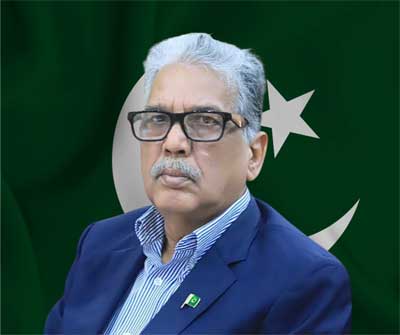
Earlier this year, I had the privilege of meeting Mr. Nakagawa Yasushi, the Deputy Consul General of Japan in Karachi, during a visit by a delegation from the Karachi Editors Club to the Japanese Consulate. It was our first interaction, and I was immediately struck by his warm, friendly, and jovial nature. Mr. Nakagawa is a man of many passions, one of which is music, but what truly stood out to me was his fluency in Urdu. He conducted the entire interview in Urdu, which was both impressive and unexpected. Translating his insightful replies into English took a considerable amount of time, given that our newspaper, The Financial Daily, is published in English.
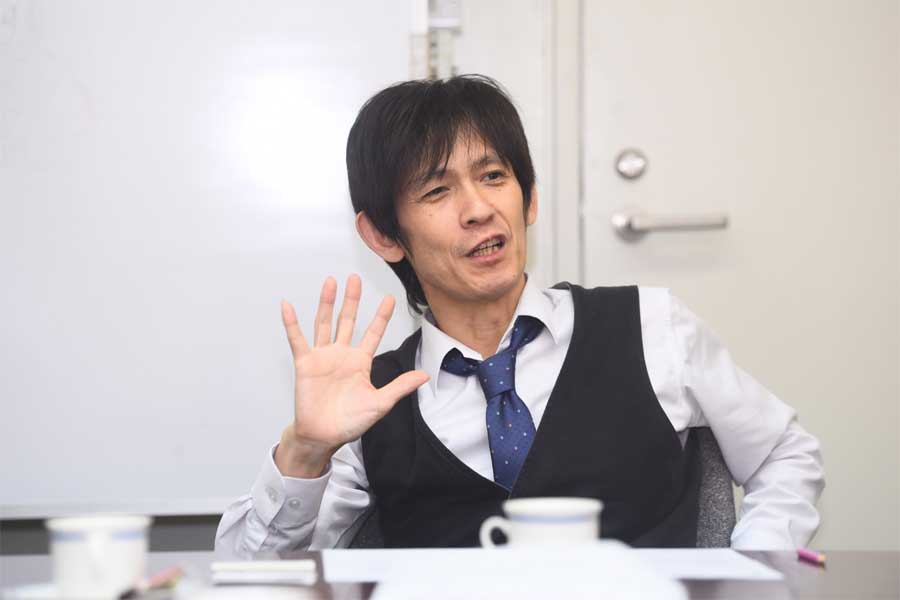
This interview offers a rare glimpse into the thoughts of Mr. Nakagawa, who shares his perspectives on Japan-Pakistan relations, the role of cultural exchange, and his personal experiences. His insights not only highlight the strong partnership between our nations but also the immense potential for future collaboration in various fields. Below are our questions and Mr. Nakagawa’s responses, translated from Urdu to English for the benefit of our readers.
Q: What factors contributed to Japan’s remarkable development after World War II?
Mr. Nakagawa: Japan’s post-World War II recovery is often viewed as miraculous, but it was deeply rooted in two major factors. First, our national culture and identity have historically emphasized unity, education, and community. During the war’s aftermath, this cultural cohesion helped Japan withstand the devastation. Our people’s resilience, fortified by a long-standing commitment to education and collective well-being, was a cornerstone in rebuilding the nation. This unity allowed us to recover with speed and determination in the face of unprecedented challenges.
Secondly, Japan’s geopolitical situation during the Cold War played a significant role. The United States recognized Japan’s strategic importance as an ally against Soviet influence in Asia. Instead of treating Japan as a vanquished foe, the U.S. supported us economically and politically, integrating Japan into the post-war global order. The presence of U.S. military bases on Japanese soil allowed us to focus our resources on rebuilding the economy, rather than defense. These two factors-the strength of our cultural fabric and international support-transformed Japan into a global economic powerhouse.
Q: What is the current status of bilateral relations between Japan and Pakistan?
Mr. Nakagawa: The bilateral relations between Japan and Pakistan are stable but have not yet reached their full potential. There is often a perception in Pakistan that Japan is not doing enough to support the country. However, I can assure you that Japanese businesses are very interested in Pakistan, particularly given its large population of 240 million. The potential for economic engagement is vast, but political instability and policy inconsistencies in Pakistan have created significant challenges for Japanese investments.
Japanese companies seek political stability and security when making long-term commitments. Frequent policy changes and governmental shifts in Pakistan create uncertainty, deterring investment. It is important for both nations to engage in a continuous, constructive dialogue. Our interest transcends political administrations, and we are keen on maintaining a strong long-term relationship with Pakistan. Misunderstandings or adverse actions taken against Japanese businesses last year could hamper future investments, which is a genuine concern for us.
Q: How do you assess the current trade volume between Japan and Pakistan?
Mr. Nakagawa: Trade between Japan and Pakistan shows great potential for growth. In 2022, according to the IMF, Pakistan exported goods worth $1.69 billion to Japan, while imports from Japan were around $220 million. This significant trade imbalance suggests that there is much more that can be done to strengthen our bilateral trade ties.
We see tremendous opportunities, particularly in sectors such as textiles, agriculture, and technology. Pakistan’s abundant natural resources and its talented workforce can complement Japan’s expertise in technology and manufacturing. By addressing the barriers to trade, including policy inconsistencies and logistical challenges, both countries can work together to unlock this potential.
Q: What initiatives can enhance people-to-people contact between Japan and Pakistan?
Mr. Nakagawa: Strengthening people-to-people ties is essential for building long-lasting relations between our countries. Unfortunately, there hasn’t been a visit from a Japanese Prime Minister to Pakistan in many years, although ministerial exchanges and high-level dialogues occur regularly.
Cultural exchange plays a crucial role in fostering goodwill and mutual understanding. Organizing joint cultural festivals, art exhibitions, and educational exchange programs can help build bridges between our peoples. For example, I expect that after the upcoming elections in Pakistan, we will witness more visits and collaborations, particularly in business, investment, and cultural domains.
Additionally, youth exchange programs and internships are essential. These initiatives allow young people to experience each other’s cultures firsthand, laying the foundation for future leaders who appreciate and understand the values of both nations.
Q: What role does JICA play in Pakistan’s economic and social development?
Mr. Nakagawa: The Japan International Cooperation Agency (JICA) has been instrumental in supporting Pakistan’s economic and social development. For decades since establishment of diplomatic relationship, Japan has extended financial assistance to Pakistan in the form of loans, grants, and technical cooperation. This aid focuses on areas such as human security, infrastructure development, and stability in border regions.
For instance, by 2021, the Government of Japan had provided loans amounting to 817.475 billion yen and grant aid totaling 299.41 billion yen to Pakistan. Technical cooperation, an equally important part of our assistance, reached 65.434 billion yen by the same year. JICA is also involved in various projects, including urban infrastructure development, disaster management, and health initiatives like the anti-polio campaign. Our goal is to support Pakistan’s long-term development in a way that aligns with its national priorities.
Q: How do cultural exchange programs help strengthen ties between Japan and Pakistan?
Mr. Nakagawa: Cultural exchange programs are a powerful way to bring people together, especially when they resonate with the youth. During my time in Karachi, I’ve observed a strong interest in Japanese pop culture, particularly through events like the “Geek Heaven” convention, where anime, manga, and cosplay are celebrated.
This enthusiasm presents an opportunity to build stronger cultural ties. Social media can also play a role in promoting Japanese culture in Pakistan. Personally, as a music lover, I believe that sharing traditional and modern Japanese music and instruments could create emotional bonds between the people of Japan and Pakistan.
Q: What steps is Japan taking to promote educational exchanges with Pakistan?
Mr. Nakagawa: Japan offers several educational exchange opportunities through initiatives like the Japan-East Asia Network of Exchange for Students and Youths (JENESYS) program. This program fosters understanding and friendship among youth from both countries by organizing study tours, cultural exchanges, and internships.
These experiences allow Pakistani students to learn about Japan’s culture and educational systems firsthand. By nurturing these future leaders, we aim to deepen mutual understanding and strengthen the long-term relationship between our nations. I encourage students and educators interested in such programs to visit our website for more information.
Q: How is Japan contributing to technological advancements in Pakistan?
Mr. Nakagawa: Japan is actively sharing its expertise in various sectors, particularly agriculture. For instance, we’ve been collaborating on improving the cultivation of Basmati rice and supporting mango exports. Although I am not a technical expert, I believe that our cooperation in agriculture could significantly benefit Pakistani farmers by increasing yields and improving the quality of their products.
In addition, Japanese companies are exploring opportunities in renewable energy and waste management. As Pakistan grapples with environmental challenges, such collaborations can offer innovative solutions that are essential for the country’s sustainable development.
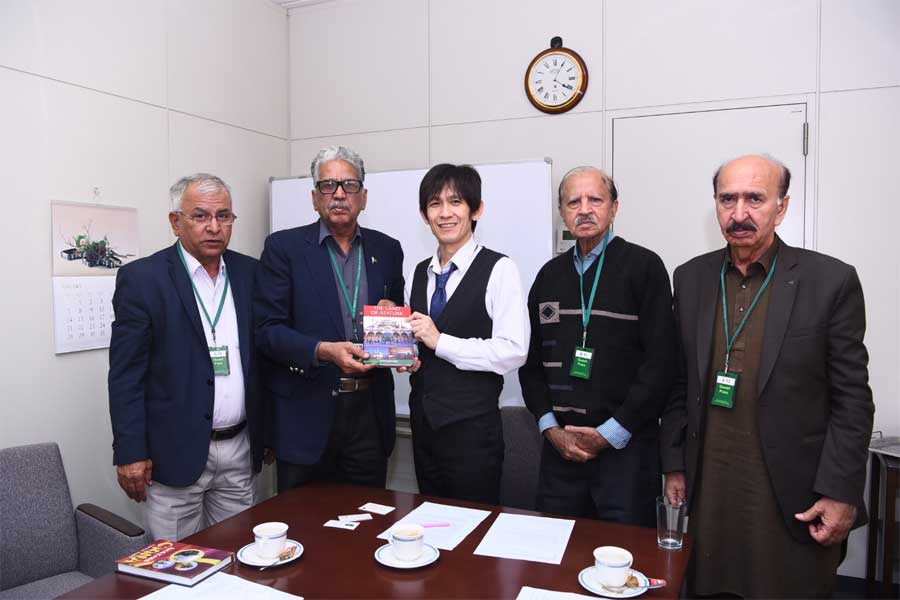
Q: Are there any ongoing collaborations in innovation and technology between Japan and Pakistan?
Mr. Nakagawa: While I don’t have detailed information about specific ongoing collaborations, I recommend reaching out to the Japan External Trade Organization (JETRO) for updates. JETRO can provide valuable insights into potential partnerships and joint ventures between Japanese and Pakistani companies, especially in the areas of innovation and technology.
Going forward, I believe fostering technological exchanges and joint research will be crucial for both countries. Collaborative projects in sectors such as renewable energy, agriculture, and manufacturing can spur growth and create new opportunities for both Japan and Pakistan.
Q: How are Japan and Pakistan cooperating on environmental initiatives?
Mr. Nakagawa: Environmental collaboration between our countries holds great promise, especially in the context of achieving the Sustainable Development Goals (SDGs). Japan’s focus is not on large-scale infrastructure projects but rather on supporting social development and environmental sustainability.
By sharing our expertise in waste management, renewable energy, and disaster resilience, we aim to contribute to Pakistan’s environmental goals. Together, we can tackle climate change and promote sustainable practices that benefit both countries.
Q: What aspects of Karachi have impressed you the most?
Mr. Nakagawa: One of the things I appreciate most about Karachi is the strong presence of Urdu. Unlike in Islamabad, where many officials prefer to converse in English, I’ve found that people here are more comfortable speaking in Urdu, which has made my experience more enriching and enjoyable.
Another striking aspect of Karachi is its diversity. The city is a melting pot of various ethnic groups, including Sindhis, Muhajirs, Baloch, Biharis, Rohingyas, and Punjabis. This diversity adds to the vibrancy of the city and creates a unique cultural tapestry that reflects the spirit of unity in diversity.
Q: What is your perspective on the Karachi Circular Railway project?
Mr. Nakagawa: The Karachi Circular Railway (KCR) was once a flagship project for JICA, but several challenges have hindered its progress. About two decades ago, JICA had high hopes for the project. Unfortunately, a lack of political will and bureaucratic hurdles prevented it from reaching fruition.
That being said, the KCR is a project with immense potential, and Japan remains open to supporting it if the conditions are right. With greater commitment from local stakeholders and a streamlined approval process, I believe the KCR could be revived and serve as a model for urban transportation development in Karachi.
Q: Is there anything else you would like to share with our readers?
Mr. Nakagawa: Japan remains deeply committed to its friendship with Pakistan. Despite the challenges we’ve faced over the years, we see a bright future for this relationship. Japan is always ready to support Pakistan in its journey towards development, stability, and prosperity. I would like to thank your readers for their continued interest in Japan and its role in Pakistan.
This candid conversation with Mr. Nakagawa sheds light on the depth of Japan’s commitment to Pakistan. From cultural exchanges to technological collaborations, the potential for mutual growth is vast. As Mr. Nakagawa eloquently highlighted, a strong relationship between our two nations can bring about significant benefits for both Japan and Pakistan.


